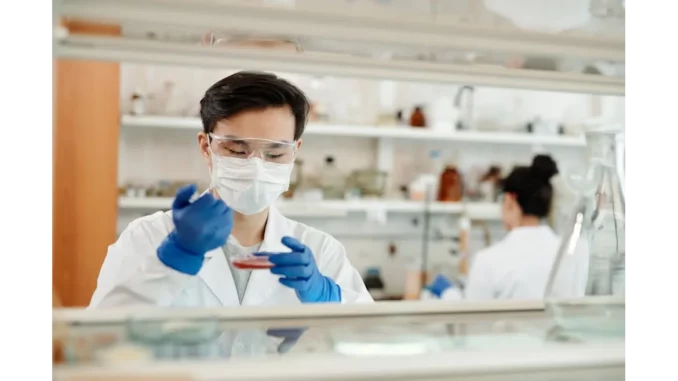
In the dynamic milieu of New York City, a transformative development within the healthcare sector is quietly gaining attention. Biotia, a trailblazer in genomic-based infectious disease diagnostics, has reached a significant milestone with the endorsement of its pioneering BIOTIA-ID Urine NGS Assay by the New York State Department of Health Clinical Laboratory Evaluation Program (CLEP). This innovative test, a first of its kind, leverages advances in genomics and artificial intelligence to fundamentally alter the diagnosis of urinary tract infections (UTIs). To gain a deeper understanding of this achievement, I had the opportunity to speak with Dr. Emily Carter, a senior researcher at Biotia.
Seated in a quiet corner of Biotia’s vibrant research facility in Queens, Dr. Carter welcomed me with an enthusiastic smile. “The atmosphere here is electric,” she remarked, reflecting on the palpable excitement pervading the team. “We’ve been striving towards this moment for years, and to finally witness our efforts being recognised at such a prestigious level is immensely gratifying.”
The BIOTIA-ID test represents a groundbreaking advancement in UTI diagnostics. Traditional culture methods, which have long been the standard for identifying pathogens, frequently fall short, often failing to capture the entire spectrum of bacteria present within a sample. This shortcoming can lead to inaccurate diagnoses and, consequently, ineffective treatments. “The limitations of current methodologies are well-documented,” Dr. Carter explained. “Our approach at Biotia allows us to capture a comprehensive microbial profile.”
The approval of the BIOTIA-ID test is not merely a triumph for Biotia but signifies a substantial progression for healthcare as a whole. As Dr. Carter highlighted, UTIs impact millions annually, with women disproportionately affected by these infections. “Traditional methods often miss critical pathogens,” she noted. “Our test, which boasts a 97% sensitivity and 99% specificity, offers a more precise diagnosis, essential for effective treatment.”
Dr. Carter elaborated on how the BIOTIA-ID test utilises state-of-the-art genomics and artificial intelligence to achieve its impressive accuracy. Employing a process known as shotgun metagenomic sequencing, the test facilitates comprehensive pathogen detection, significantly diminishing the likelihood of false positives. “Our technology not only enhances accuracy but also revolutionises the diagnostic process as a whole,” she asserted passionately.
The ramifications of this advancement are profound. A recent clinical study presented at IDWeek 2024 revealed that the BIOTIA-ID assay successfully identified pathogens in 60% of urine samples that traditional methods failed to detect. Alarmingly, the study also found that 70% of these patients had been prescribed ineffective antimicrobials. “This underscores the critical need for our test,” Dr. Carter stated with urgency. “Accurate diagnosis is the crucial first step towards effective treatment.”
For patients grappling with complex or recurrent UTIs, or those with compromised immune systems, this test could prove to be a crucial intervention. “Such patients often encounter delays in receiving appropriate treatment,” Dr. Carter elaborated. “Our test is particularly advantageous for them, ensuring prompt and accurate medication.”
Furthermore, Dr. Carter underscored the BIOTIA-ID test’s role in promoting responsible antimicrobial use, an imperative consideration given the rising challenge of drug resistance. “By providing precise diagnostic information, we empower clinicians to prescribe the correct antibiotics, thereby mitigating the risk of resistance,” she explained.
Biotia is prioritising the integration of this test into clinical workflows and ensuring its accessibility. Dr. Carter discussed ongoing collaborations with leading medical institutions and insurance providers to broaden access. “We are committed to making this technology available to as many patients as possible,” she affirmed, highlighting Biotia’s dedication to making a substantive impact in healthcare.
Reflecting on this landmark achievement, Dr. Carter expressed both pride and optimism. “This approval is merely the beginning,” she declared with confidence. “We stand on the brink of a new era in infectious disease diagnostics, with Biotia at the vanguard.”
As our discussion concluded, it became evident that Biotia’s milestone extends beyond a mere corporate accomplishment. It represents a significant leap forward in the battle against infectious diseases, heralding a future where diagnostics are more precise, treatments more effective, and patient outcomes significantly improved.
For those within the medical community and beyond, the approval of the BIOTIA-ID test serves as a beacon of hope and progress, signalling a shift towards a more personalised and efficacious approach to healthcare.


Be the first to comment